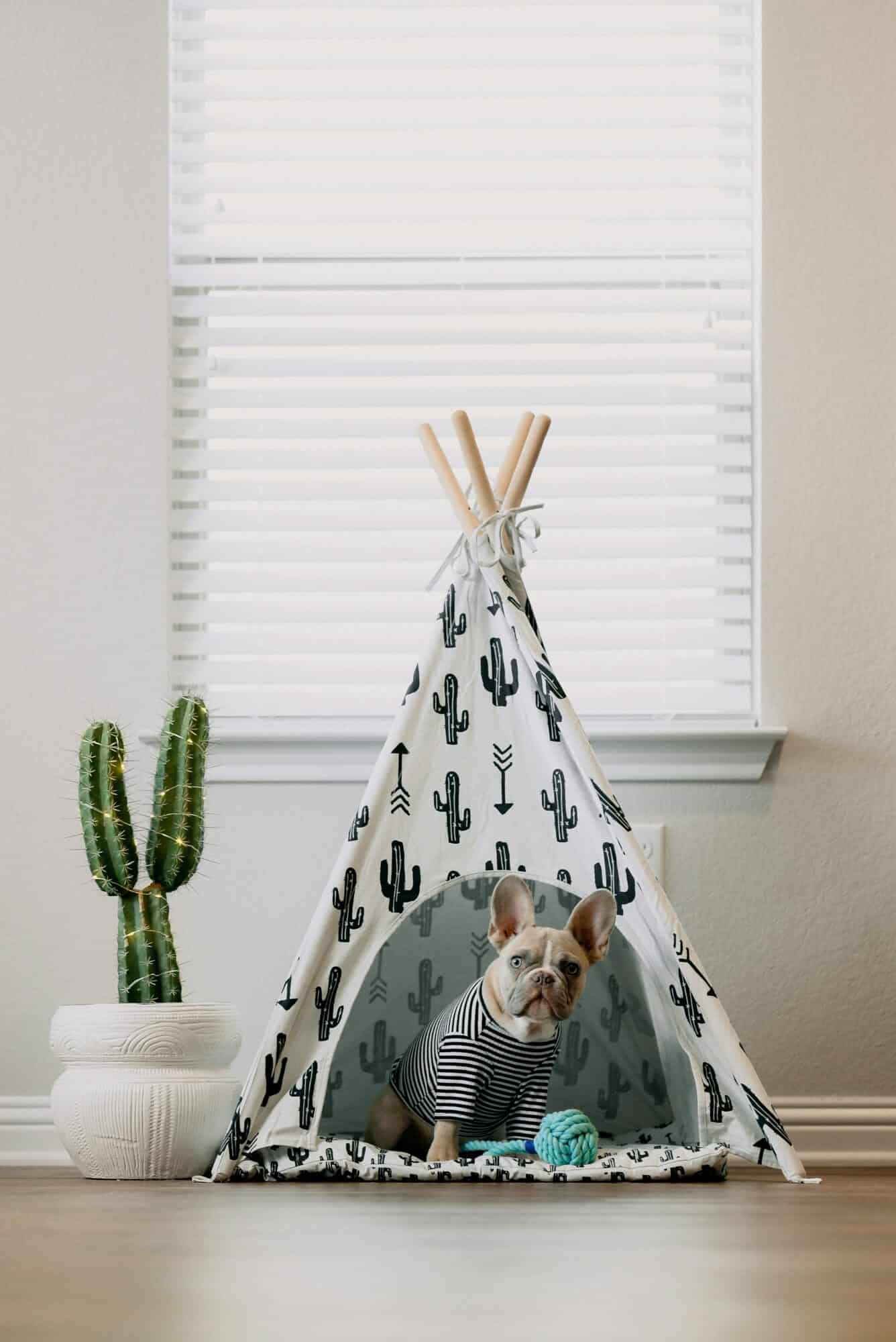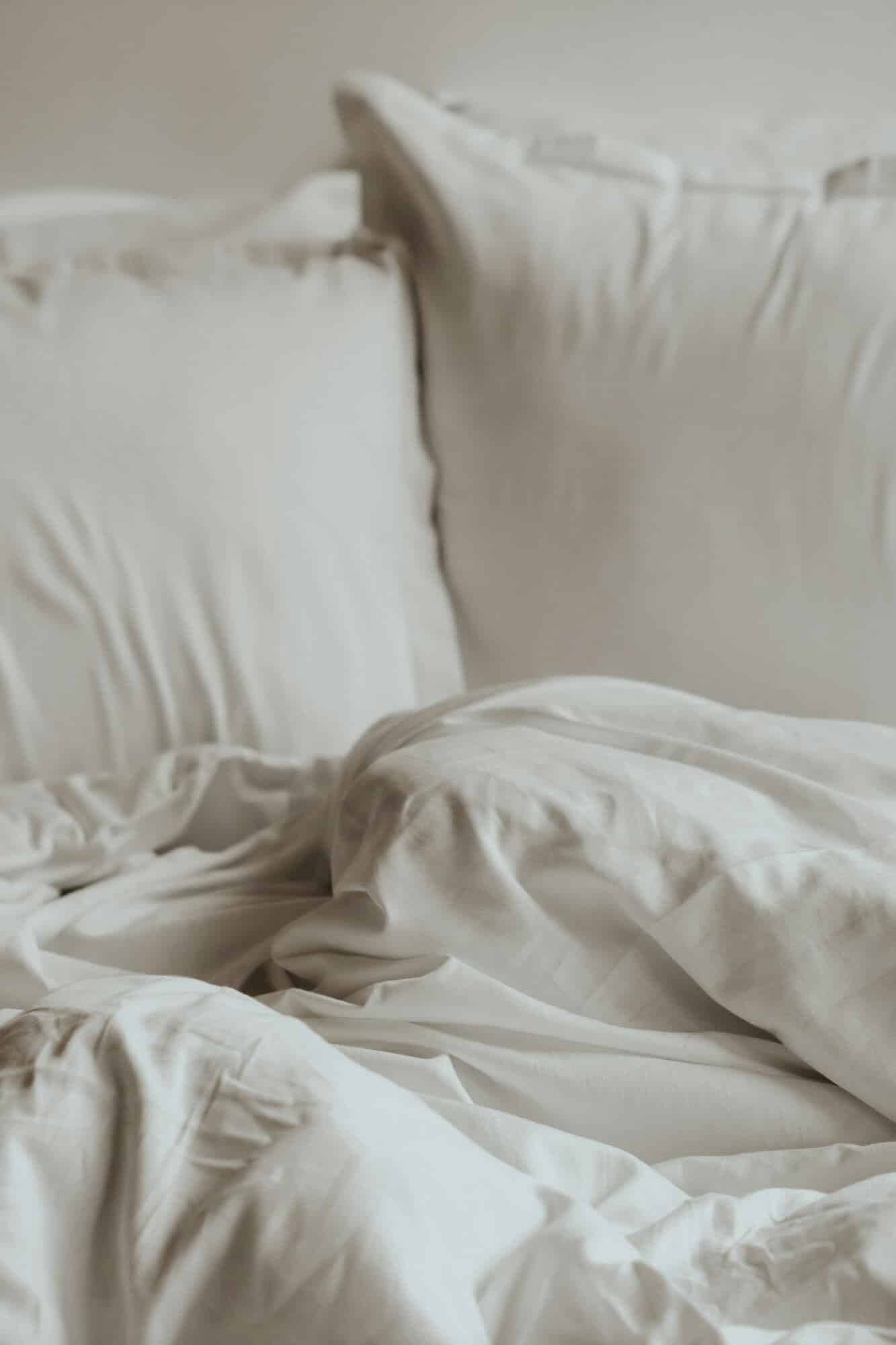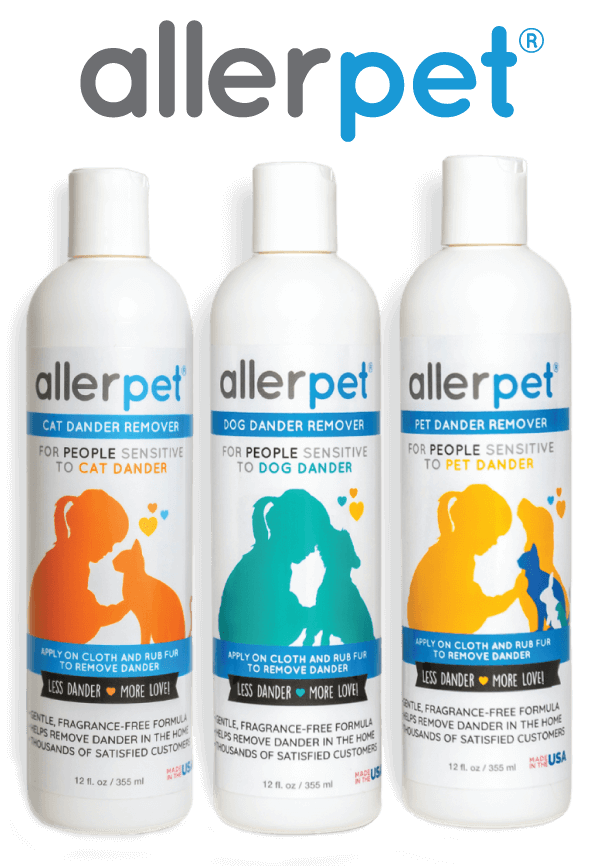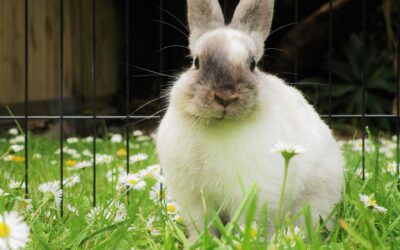Reducing Allergens In Your Environment
Being allergic does not necessarily mean that you can’t have a pet or that you must give up one that you already have. Learning more about minimizing pet-related allergens and making some minor adjustments may help to solve your problem. It is frequently possible for allergic persons to live comfortably with a pet if they will make an honest effort and commitment to care for their pet and environment on a regular basis. If you are allergic to your pet, you may find that other airborne allergens in your home – dust, dust mites, molds, mildew, paint, perfume, pesticides and smoke, for instance – may also be causing problems. The following are some general suggestions.
The House
If your own a dog or cat, train it to sleep in its own bed with its own washable cushion or blanket. If the pet uses a particular chair or sofa as a resting place, it will help to cover that piece of furniture with a towel or sheet. Wash the pet’s bedding or furniture covers regularly in hot water, dry at the warmest setting to eliminate the dander. Vacuum the bed and surrounding areas often. Animal allergens, however, are nearly impossible to capture with a conventional vacuum. Their filtering systems are only capable of retaining large particles when much smaller particles (like pet allergens) are the ones that aggravate your allergies.

Conventional vacuums do pick up small irritants, but they blow them through the exhaust right back into the air. The particles that escape re-circulate to be re-inhaled, or to settle again into the carpets, furniture or draperies. Several companies manufacture vacuum cleaners that are designed for allergy sufferers, machines with ultra-fine HEPA filtration that will capture even the smallest microscopic particles. HEPA (High-Efficiency Particulate Air) filters purify 99.97 percent of all airborne particles larger than 0.3 microns. You may also be able to turn your conventional vacuum into a cleaner air machine by using special disposable electrostatic bags. These are available for a number of upright or canister model machines.
Keep everything as clean and free of dust and dander as possible. Dust all surfaces regularly with a damp cloth or special dusting cloths and mops that retain dust without stirring it up.
As far as general cleaning is concerned, ideally someone other than the allergy sufferer should do the necessary dusting. If that’s not possible, the allergy sufferer should wear a protective mask that covers the nose and mouth to avoid inhaling heavy doses of allergens. Avoid heavy carpets, ornately carved or overstuffed furniture, fabric wall coverings, textured wallpapers, dust gathering accessories and rough textured curtains or draperies.
Air purifiers can dramatically improve the quality of air inside your home. Look for one that contains a HEPA filter.
Your home should have as many washable surfaces as possible. Choose furniture with smooth wooden surfaces and simple lines, walls that can be washed easily, washable cotton curtains, blinds that wipe clean, and floors of polished hardwood, tile or linoleum.
Air purifiers can dramatically improve the quality of air inside your home. Look for one that contains a HEPA filter. Air conditioners and humidifiers are very beneficial during the appropriate season, but they also collect mold and can cause allergy problems if they are not cleaned regularly. Use a high efficiency (allergy) furnace filter in your HVAC unit to further clean your home’s air.
Mold grows in damp and humid areas such as basements, bathrooms, closets, attics. Check the house for damp areas that might conceal molds. Throw out all old or unused newspapers, books, magazines, clothing and articles that are sources of mold and mildew. Also, check for any roof leaks or leaking plumbing to avoid dampness and mold growth.
Proper ventilation can also help to lower the concentration of pet allergens. Poor air distribution throughout a home is a major factor contributing to the buildup of indoor airborne allergens, pet or musty odors, mildew and the resulting health problems. EPA studies indicate that indoor air is often more polluted than outdoor air. To encourage natural ventilation, whenever the weather is suitable, open several windows (screened, of course, to prevent pets from escaping) for a short time each day to draw in fresh air.
Allergic persons are often supersensitive to odors that can trigger an attack at any time. Avoid perfumes, colognes and after shave lotions; make-up containing fragrance; bubble bath; scented facial or toilet tissues; deodorizing aerosols; hair sprays; insecticides and cleaning fluids. Scented fabric softeners and laundry detergents are especially irritating.

The Bedroom
If you can’t “allergy proof” your entire home, then concentrate on the bedroom. Experts say that if you can breathe “pure” air for 8 to 10 hours each night, you can probably tolerate more exposure to allergenic substances during the day. Run a HEPA room air purifier in your bedroom 24/7 with the bedroom door closed. (You can turn it to “low” while you’re sleeping if it disturbs you.)
Keep your pets out of your bedroom. Don’t ever allow your dog or cat to sleep on your bed, and do not keep the cages of small furry pets or birds in your bedroom. If you are away during the day, be sure to keep your bedroom door closed to prevent pets from napping on your bed.
Encase mattresses, box springs and pillows in allergy-proof, zippered encasements. Use sheets, pillowcases, mattress pads, and bedspreads made of 100 percent washable cotton free of chemical finishes. Buy special non-allergenic pillows, or those filled with Dacron or polyester, not kapok, down or feathers. Air bedclothes outside in sunny weather. Keep pets away from pillows or anything else that comes into close contact with your nose and mouth.
People who are allergic to pets may also be allergic to dust mites. The allergic potential of dust mites is not caused by the mites themselves, but by the powerful proteins contained in their fecal matter, decomposing body parts, and secretions.
When these allergens dry out, they become airborne as soon as you shake your bedding or fluff a pillow. While dust mites can live almost anywhere in your home, they are most often found in the bedroom, where millions of them live in your pillows, sheets, blankets and mattresses as well as carpeting.
Using DeMite Laundry Additive to eliminate dust mite allergens from your bedding significantly helps to control these allergens
Dust mites thrive most rapidly with moisture, heat and food. This is why your bed is their “pleasure palace,” where they have everything that they need to sustain life and multiply: the heat of your body, the moisture your body emits and the food of your dead skin cells.
Using DeMite Laundry Additive to eliminate dust mite allergens from your bedding significantly helps to control these allergens beyond the use of encasements only. DeMite can achieve this control by eliminating virtually all dust mite allergens when washing your bedding in cool, warm or hot water. Learn more about this on our DeMite site.
Make your bedroom as free of allergen catchers as possible: the furniture clean and simple; pictures or hanging decorations at a bare minimum; no magazines, newspapers or clutter under the bed; no bulky drapes; no carpeting, especially deep pile or loop; no flowers or plants; no perfumes, scented cosmetics or stuffed toys; the more washable surfaces, the better. Books are notorious dust catchers. Keep them in glass enclosed cases. Store your clothing in clean closets. Shut the bedroom door when you leave.
General Health
When possible, wash your hands after handling your pet. Try not to touch your face, especially your eyes, until you have washed thoroughly with soap.
Avoid undue fatigue, emotional upsets, or any kind of stress. These may weaken the immune system to the point of triggering an allergic attack.
Don’t smoke. If you are the least bit allergic, smoking will make things worse and increase your chances of respiratory and other health problems, as well as lower your tolerance threshold to other substances.
The Professional Groomer
The Professional Groomer, whether part of a Veterinary Hospital or independent, can be your best friend when it comes to helping you take care of your pet. Most people think that professional groomers only bathe and trim dogs. They do these things, but these are only a few of the many services that they perform.
A Professional Groomer can help you solve some of your pet related allergy problems by combing or brushing your cat or dog on a regular basis to keep it free of dead hair, by bathing it when necessary, and by cleansing it’s coat of allergy-producing antigens with Allerpet. You may need to ask your groomer to keep Allerpet for Cats and Allerpet for Dogs in stock to do treatments for you while you do treatments at home between grooming sessions.





